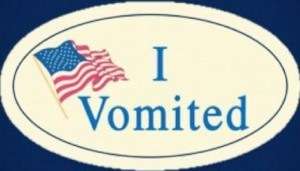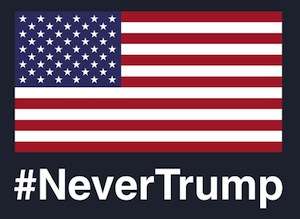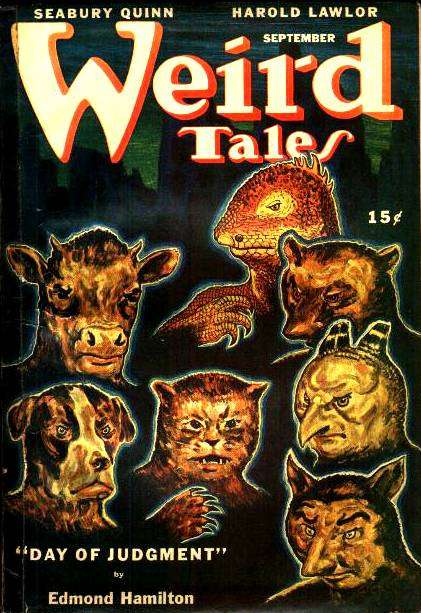Three Reasons the Libertarian Party Could Do Unusually Well—and Three Reasons It May Want to Contain Its Excitement
What can America's largest third party expect from this election?

This weekend the Libertarian Party will choose a presidential candidate in Orlando. Ordinarily that would not be major news, but the press is paying the L.P. much more attention than usual this year. Faced with the dreary prospect of a race between Donald Trump and Hillary Clinton, many voters have been casting about for a third option. And now three polls have shown the most likely Libertarian nominee, Gary Johnson, pulling about 10 percent in a three-way race.
Some portion of that 10 percent is surely just a generic none-of-the-above statement from people who couldn't tell you who Gary Johnson is (he used to be governor of New Mexico) or what the Libertarian Party believes (it's a mix of live-and-let-live social policy, laissez-faire economic policy, and antiwar foreign policy). But 10 percent is far more than a Libertarian will usually get, and it has attracted attention. So has Johnson's announcement that former Massachusetts governor William Weld is willing to be his running mate. Weld's views sometimes aren't that libertarian, but he's the sort of name that makes the media take notice. Add the fact that Johnson's rivals for the nomination include another famous figure—the eccentric entrepreneur John McAfee, who comes across as a mash-up of Hunter Thompson and Howard Hughes—and you've got yourself a story.
But will it still be a story in November? Here are three reasons to think the Libertarian Party could fare unusually well this year—and three reasons its members might want to contain their excitement.
1. People really can't stand Trump and Clinton…

According to an NBC poll released earlier this week, nearly 60 percent of Americans say they either "hate" or "dislike" Hillary Clinton; just over 60 percent say the same about Donald Trump. In another recent survey, this one from NBC and The Wall Street Journal, the two leading candidates had the lowest favorability ratings for any major-party nominees in the history of the poll. Last week a poll from Data Targeting showed 55 percent of the country wishing an independent would enter the race. Voters are plainly hungry for another choice.
…but that doesn't mean they hate Trump and Clinton equally.
Just because people want a third choice doesn't mean they'll actually vote for one. Partisanship is powerful—so powerful it can lead people to cast their ballots for candidates they can't stand.
Why? One compelling study, presented last year by the Emory political scientists Alan Abramowitz and Steven Webster, suggests that, as the song goes, it's hatred that keeps us together: A great deal of partisan behavior is driven not by party loyalty but by fear of the other team. Many Americans despise Donald Trump and Hillary Clinton, but they still might vote for one of them if they find the other one even more revolting.
2. The L.P. may be THE third option…
Each time there's this much public dissatisfaction, Libertarian activists hope it will pay dividends for their party. And each time, another campaign steals its thunder. That shouldn't be surprising: When voter anger is high enough that a Libertarian has a chance to do well, another candidate is likely to see the same opening and jump in.

In 1980, the two major presidential candidates—Jimmy Carter and Ronald Reagan—were widely disliked. The Libertarian Party had an articulate nominee, a spot on all 51 ballots, and a lot of money to spend. Then John Anderson decided to run as an independent. Anderson wasn't particularly libertarian, but he drew much of his support from the young, skeptical liberals that the L.P. had planned to target. Between that and Reagan's limited-government rhetoric, which hurt the party's ability to make inroads on the other end of the spectrum, the Libertarian ticket got only about 1 percent of the vote. That's much better than its usual tally, but it's nothing near what activists had hoped.
In 1992, the country faced its first national election since the end of the Cold War, a time when a lot of old certainties suddenly seemed shaky. The incumbent was unpopular, a recession was underway, both the Democrats and the Republicans were hit by anti-establishment insurgencies in the primaries, and there was good reason to think a lot of the country wanted a third option. The L.P. was not in as good a position this time as it was in 1980: It was on all 51 ballots again, but it had less money to spend and was saddled with a terrible candidate. But its biggest problem was Ross Perot, whose independent campaign soaked up almost all of the protest vote.

That's a lot less likely to happen in 2016. For all the talk of the #NeverTrump Republicans running a candidate of their own, they've had a hard time finding a standard-bearer—and if they ever do dig one up, he'll face a maze of ballot-access restrictions. Just as Trump managed to benefit from nomination rules that had been enacted precisely to block insurgents like Trump, the Libertarian Party now faces less competition because of ballot access laws enacted to block groups like the Libertarian Party. For the first time in the L.P.'s 44-year history, it may get to be the most prominent presidential alternative in a year when lots of people want an alternative.
…but the big third options tend to fall apart quickly.
While that may boost the Libertarian vote total this year, that growth won't necessarily be sustainable in the long run. Anderson planned to build on his presidential campaign by starting a new National Unity Party, but it failed to launch. Perot's Reform Party saw its vote total decline in 1996, and then it splintered into rival parties that haven't had much national impact. It is the nature of this sort of third-party storm—one that breaks out in the upheavals of a particularly tumultuous election—to dissipate soon afterward. So even if this year's Libertarian candidate gets an unusually high number of votes, you shouldn't assume his successor will be able to build on that in 2020.
That doesn't have to be what happens. But I wouldn't bet against it. In the strange circumstances of 2016, we're seeing folks like Mary Matalin—a longtime Republican operative who never showed any interest in libertarianism before—suddenly join the Libertarian Party. Does anyone really expect her to stick around?

3. It's a weird year…
The Republicans are about to nominate a TV star with no political experience who spent the primaries dropping what would have been 10-megaton gaffes if any ordinary politician had said them. The Democrats' primary voters have given more than 40 percent of their support to a self-proclaimed socialist who until last year didn't even belong to the party. Just a few weeks ago, one major candidate was strongly implying that another candidate's father was involved in the assassination of John F. Kennedy. If you want to tell me the Libertarian Party could get 10-plus percent of the vote this year, I won't dismiss you. This is, to use a technical term from political science, a really fucking weird election.
…but normality is resilient.
Let's not just throw up our hands and declare that nothing is real and everything is permissible. Even this year's strangeness has had limits.
Think of all the odd forecasts that so far have failed to come true. We are not en route to a brokered Republican convention. Bill Kristol has not rebooted the Bull Moose Party. Bernie Sanders has not won the Democratic nomination. Michael Bloomberg has not launched a vanity campaign. Many bizarre things will surely happen between today and November 8. A strong showing for the Libertarian Party is not necessarily one of them.
But I can't blame any delegates in Orlando this weekend who feel excited about their chances. This year has been a goddamn flock of black swans. Maybe one of those swans will turn out to be the Libertarian Party.


Show Comments (57)